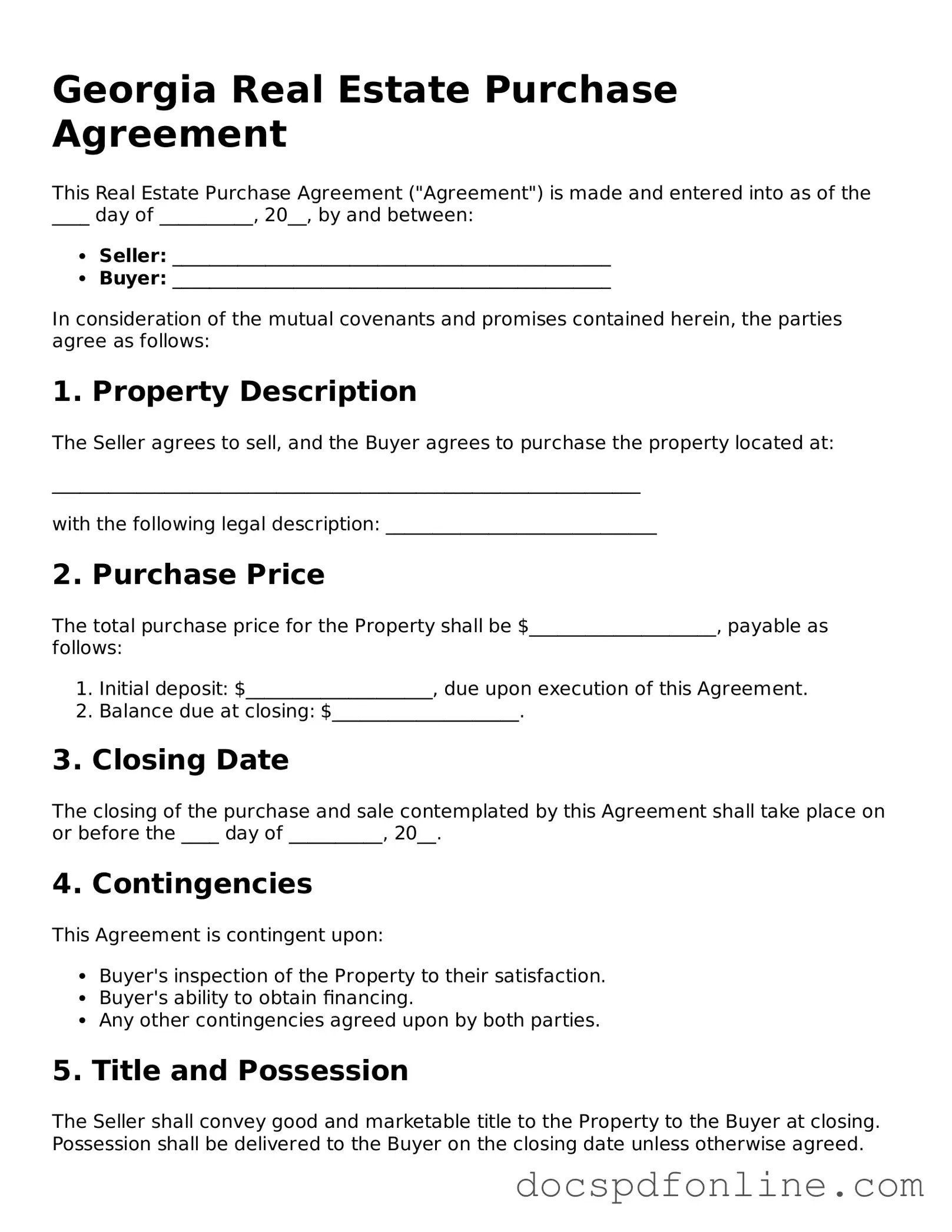Legal Real Estate Purchase Agreement Template for Georgia
The Georgia Real Estate Purchase Agreement is a legal document that outlines the terms and conditions under which a buyer agrees to purchase property from a seller. This form serves as a crucial tool in real estate transactions, ensuring that both parties understand their rights and obligations. Familiarity with this agreement can help facilitate a smoother buying process in the state of Georgia.
Launch Editor Now

Legal Real Estate Purchase Agreement Template for Georgia
Launch Editor Now
Save time — finish this form fast
Finish Real Estate Purchase Agreement online — edit, save, download made easy.
Launch Editor Now
or
↓ PDF File
